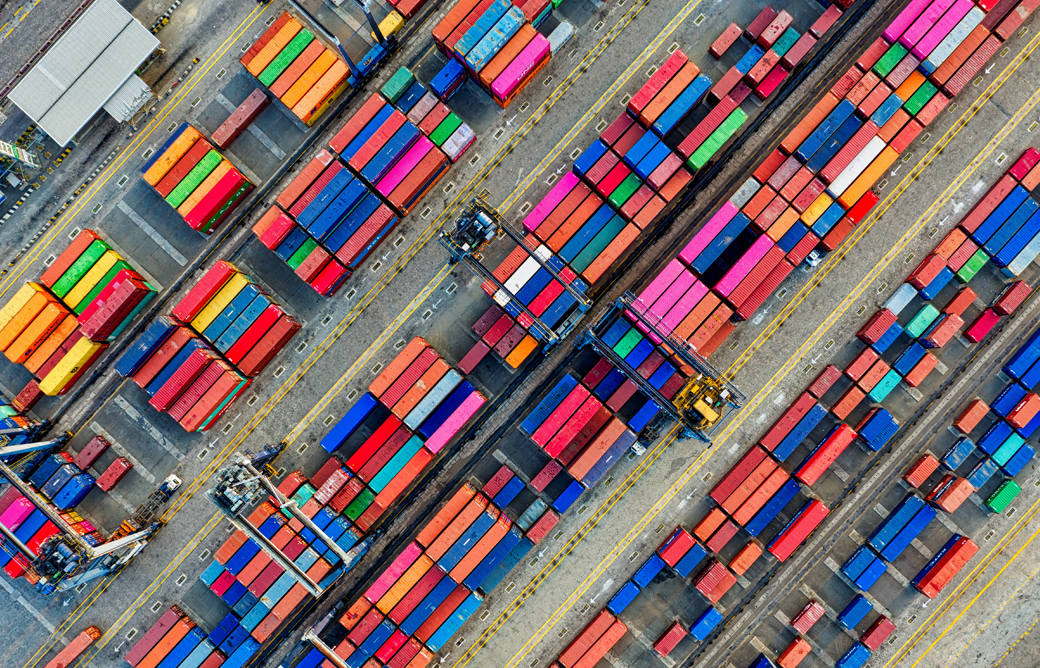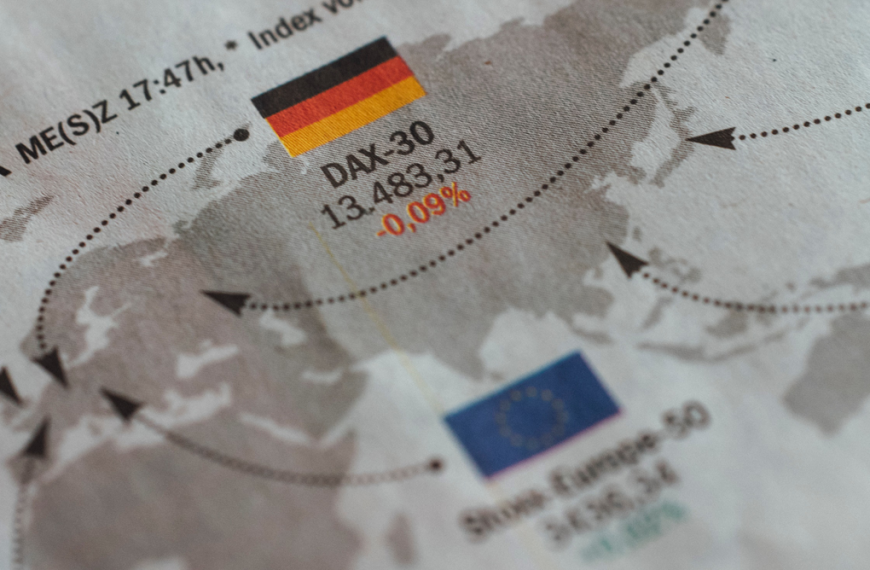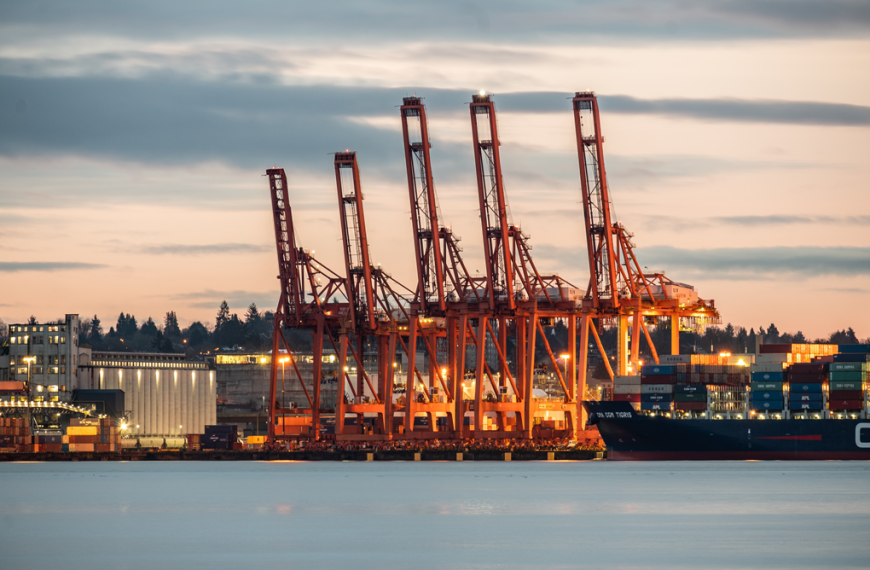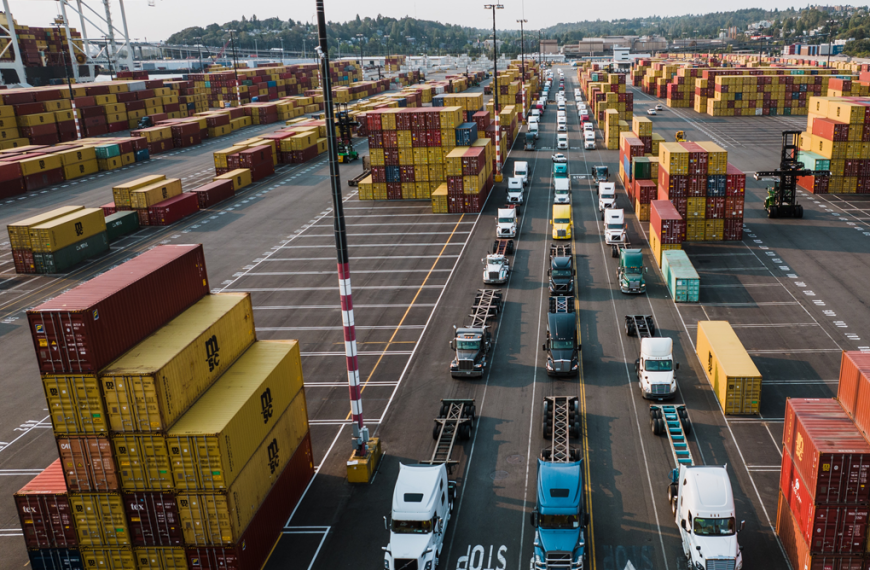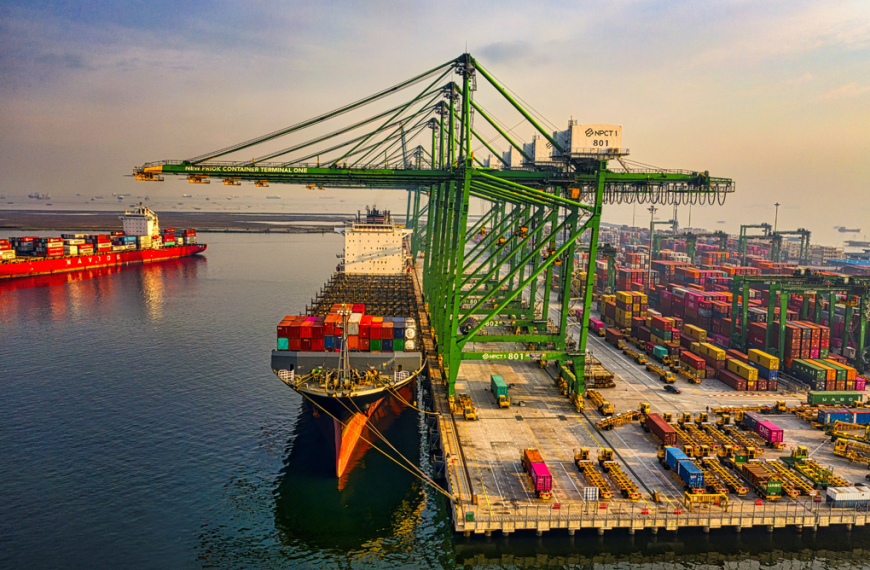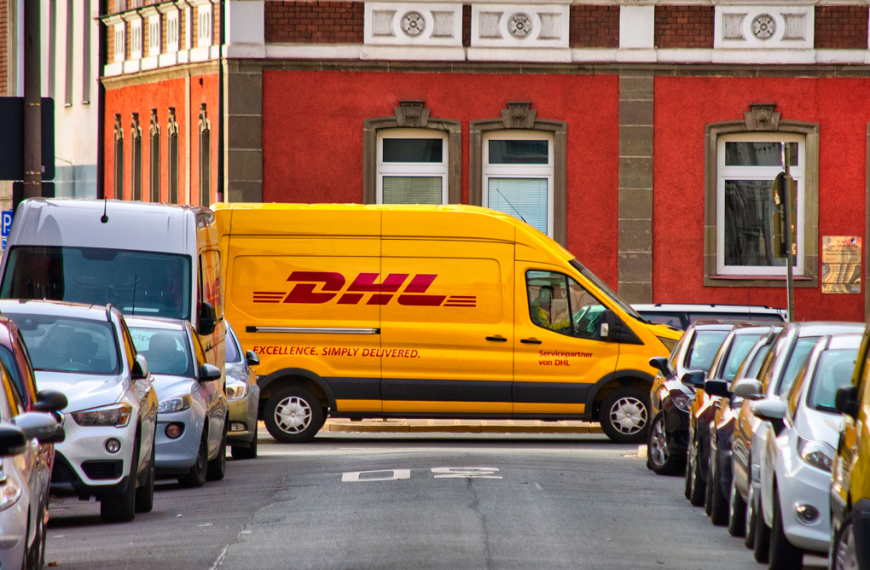Experience the power of blockchain technology in ensuring accuracy and reliability in freight transactions. Discover how blockchain revolutionizes the freight industry, providing a secure and transparent platform for seamless documentation and trusted transactions.
With blockchain, you can streamline your freight operations, eliminate paperwork, and enhance visibility and traceability. Embrace the future of freight management and unlock the potential for increased efficiency, reduced errors, and improved trust in your supply chain. Explore the benefits of blockchain technology for freight transactions and elevate your business to new heights of reliability and precision. Trust in blockchain for accurate and dependable freight transactions that drive success.
- Understanding The Role of Blockchain in Freight Transactions
- 1. Enhancing Freight Handling with Blockchain
- 2. Securing Freight Insurance through Blockchain
- 3. Improving Freight Visibility and Tracking
- 4. Exploring Drone Freight Delivery with Blockchain
- 5. Addressing Freight Industry Challenges with Blockchain
- 6. Transforming Cold Chain Logistics with Blockchain
- 7. Unlocking the Potential of Digital Freight Forwarding
- 8. Ensuring Freight Transportation Security through Blockchain
- 9. Leveraging Blockchain in Last-Mile Delivery
- 10. Streamlining Freight Logistics with Blockchain
- 11. Empowering Freight Forwarders with Blockchain
- Enhancing Data Integrity and Security with Blockchain in Freight Operations
- 1. The Significance of Data Integrity in Freight Transactions
- 2. Securing Freight Handling and Visibility
- 3. Streamlining Freight Insurance Processes
- 4. Overcoming Industry Challenges with Blockchain
- 5. Embracing Digital Freight Forwarding
- 6. Leveraging Drone Freight Delivery
- 7. Collaborating with Freight Forwarders and Industry Stakeholders
- Streamlining Documentation Processes for Accurate Freight Transactions Using Blockchain
- Leveraging Blockchain for Real-time Tracking and Transparency in Freight Transactions
- Mitigating Risks and Ensuring Trust in Freight Transactions with Blockchain
- Exploring Smart Contracts in Freight Transactions: Ensuring Reliability and Efficiency
- Case Studies: Successful Implementation of Blockchain for Accurate and Reliable Freight Transactions
- Frequently Asked Questions (FAQs)
- Related Articles
Understanding The Role of Blockchain in Freight Transactions
The world of freight transportation is undergoing a digital revolution, and one technology at the forefront is blockchain. Blockchain is transforming the way freight transactions are conducted, bringing transparency, security, and efficiency to the process. In this article, we will delve into the significance of blockchain in freight transactions and explore its impact on various aspects of the industry.
1. Enhancing Freight Handling with Blockchain
Blockchain technology improves the accuracy and efficiency of freight handling processes. By creating a decentralized and immutable ledger, it eliminates the need for intermediaries and minimizes errors and delays.
2. Securing Freight Insurance through Blockchain
Blockchain ensures the reliability and transparency of freight insurance by providing a tamper-proof record of insurance policies and claims. Smart contracts enable automated claims processing, reducing paperwork and streamlining the insurance process.
3. Improving Freight Visibility and Tracking
With blockchain, freight visibility and tracking are revolutionized. Through distributed ledger technology, stakeholders can access real-time data on the movement of goods, enhancing transparency and reducing the risk of theft or loss.
4. Exploring Drone Freight Delivery with Blockchain
Blockchain technology has the potential to revolutionize drone freight delivery. By enabling secure and automated transactions, blockchain facilitates the integration of drones into the freight transportation ecosystem, enhancing efficiency and reducing costs.
5. Addressing Freight Industry Challenges with Blockchain
Blockchain addresses various challenges faced by the freight industry, such as data integrity, supply chain transparency, and trust among stakeholders. It provides a secure and immutable platform that fosters collaboration and improves operational efficiency.
6. Transforming Cold Chain Logistics with Blockchain
The cold chain logistics sector greatly benefits from blockchain technology. By recording and verifying temperature and humidity data at each stage of the supply chain, blockchain ensures the integrity and safety of perishable goods.
7. Unlocking the Potential of Digital Freight Forwarding
Blockchain enables digital freight forwarding, streamlining operations, and reducing paperwork. Smart contracts facilitate automated processes, such as documentation, customs clearance, and payment settlements, improving efficiency and reducing costs.
8. Ensuring Freight Transportation Security through Blockchain
Blockchain enhances freight transportation security by creating an immutable record of cargo, verifying the authenticity of goods, and ensuring compliance with regulations. This technology strengthens supply chain security and reduces the risk of fraud and counterfeiting.
9. Leveraging Blockchain in Last-Mile Delivery
The integration of blockchain in last-mile delivery optimizes the process, enabling efficient tracking, secure payments, and automated verification. This results in faster, more reliable deliveries and improved customer satisfaction.
10. Streamlining Freight Logistics with Blockchain
Blockchain streamlines freight logistics by providing real-time data, optimizing route planning, and automating documentation processes. This technology improves coordination among stakeholders, leading to faster and more cost-effective logistics operations.
11. Empowering Freight Forwarders with Blockchain
Freight forwarders benefit from blockchain technology by increasing operational efficiency, reducing paperwork, and enhancing trust among partners. Blockchain simplifies complex logistics processes and enables seamless collaboration in the freight industry.
In conclusion, blockchain technology is transforming the world of freight transactions, revolutionizing the way goods are handled, insured, tracked, and delivered. By embracing blockchain, the freight industry can achieve increased transparency, efficiency, and security, leading to a more streamlined and reliable transportation ecosystem.
Stay ahead of the curve and harness the power of blockchain to unlock new opportunities in the dynamic world of freight transactions.

Enhancing Data Integrity and Security with Blockchain in Freight Operations
In the ever-evolving world of freight operations, ensuring data integrity and security is crucial for seamless transactions and efficient logistics. The emergence of blockchain technology has introduced innovative solutions to address these challenges and revolutionize the freight industry.
By leveraging the power of blockchain, freight companies can enhance freight handling, improve visibility and tracking, streamline insurance processes, and overcome industry challenges.
In this digital era, where freight transactions happen at a rapid pace, data integrity and security play a pivotal role in ensuring smooth operations. This article explores how blockchain technology can enhance these aspects of freight operations and pave the way for a more efficient and secure industry.
1. The Significance of Data Integrity in Freight Transactions
Maintaining accurate and trustworthy data throughout freight transactions is crucial to avoid errors, delays, and potential losses. Blockchain technology offers an immutable and transparent ledger that enhances data integrity, ensuring that information remains consistent and tamper-proof.
2. Securing Freight Handling and Visibility
Efficient freight handling is essential to minimize errors and delays. By utilizing blockchain, freight companies can securely track and manage shipments, ensuring real-time visibility and accurate information at every stage of the supply chain.
3. Streamlining Freight Insurance Processes
Freight insurance is vital to protect goods in transit. Blockchain technology streamlines insurance processes by automating policy creation, verification, and claims settlement. This not only improves efficiency but also reduces the risk of fraud.
4. Overcoming Industry Challenges with Blockchain
The freight industry faces various challenges, such as complex documentation, inefficient processes, and lack of transparency. Blockchain solutions address these challenges by providing a decentralized and trusted platform that simplifies documentation, streamlines operations, and enhances transparency.
5. Embracing Digital Freight Forwarding
Digital freight forwarding platforms leverage blockchain to optimize freight transportation, automate processes, and enhance collaboration between stakeholders. This digital transformation improves efficiency, reduces costs, and accelerates the movement of goods.
6. Leveraging Drone Freight Delivery
The advent of drone technology opens up new possibilities for efficient and cost-effective freight transportation. Blockchain-based systems can ensure secure and transparent drone freight delivery, enabling faster and safer logistics operations.
7. Collaborating with Freight Forwarders and Industry Stakeholders
Blockchain technology facilitates secure and efficient collaboration between freight forwarders, logistics providers, and other industry stakeholders. By establishing a decentralized and trusted network, it streamlines communication, reduces paperwork, and enhances overall operational efficiency.
Blockchain technology holds tremendous potential for enhancing data integrity and security in freight operations. By leveraging its capabilities, the freight industry can overcome challenges, streamline processes, and create a more efficient and transparent ecosystem for global trade.
Embracing blockchain is not just a step towards modernization but a game-changer in shaping the future of freight logistics.

Streamlining Documentation Processes for Accurate Freight Transactions Using Blockchain
In the fast-paced world of freight transactions, accurate documentation plays a crucial role in ensuring smooth operations and minimizing errors. Manual paperwork and complex documentation processes often lead to delays and inefficiencies.
However, with the advent of blockchain technology, the freight industry is undergoing a transformative shift. Blockchain provides a decentralized and transparent platform that streamlines documentation processes, enhances data integrity, and facilitates accurate freight transactions.
Simplifying Documentation with Blockchain
Blockchain technology simplifies the complex documentation procedures involved in freight transactions. By leveraging blockchain’s distributed ledger system, freight handling can be streamlined, eliminating the need for multiple paper documents and manual verification processes. This not only reduces administrative burdens but also minimizes the risk of errors and discrepancies.
Enhancing Data Integrity and Security
One of the significant advantages of blockchain technology is its ability to enhance data integrity and security. Traditional documentation processes are susceptible to tampering, fraud, and unauthorized access. With blockchain, each transaction is securely recorded and linked to the previous one, creating an immutable chain of information. This ensures the accuracy and reliability of freight transactions while safeguarding sensitive data from unauthorized modifications.
Improving Freight Visibility and Tracking
Visibility and tracking are critical aspects of freight transportation. Blockchain technology enables real-time tracking and visibility throughout the supply chain. By capturing and recording each transaction on the blockchain, stakeholders can easily access accurate information about the location, status, and condition of shipments. This transparency not only improves operational efficiency but also enables proactive decision-making and effective risk management.
Overcoming Industry Challenges
The freight industry faces numerous challenges, including complex regulatory requirements, fragmented systems, and inefficient processes. Blockchain technology offers solutions to these challenges by creating a unified and transparent platform. It enables seamless collaboration among stakeholders, including freight forwarders, carriers, insurers, and customs authorities, leading to improved efficiency and reduced operational costs.
Enabling Secure Drone Freight Delivery
Drone freight delivery is emerging as a game-changing technology in the logistics industry. Blockchain provides the necessary security and trust for drone-based operations. By integrating blockchain with drone systems, freight transactions can be securely executed, and relevant information, such as flight logs, cargo details, and delivery confirmations, can be immutably recorded. This ensures the integrity and accuracy of drone freight delivery while maintaining regulatory compliance.
Embracing Digital Freight Forwarding
Digital freight forwarding platforms leverage blockchain technology to streamline operations and enhance collaboration. These platforms enable seamless integration of freight handling, visibility, and documentation processes. By automating tasks and eliminating manual interventions, digital freight forwarding improves accuracy, reduces processing time, and enhances customer satisfaction.
Collaborating with Freight Forwarders and Industry Stakeholders
Blockchain technology promotes collaboration among freight forwarders, carriers, and other industry stakeholders. It enables secure and transparent communication, eliminates intermediaries, and reduces paperwork. Through blockchain-based freight brokerage, stakeholders can connect directly, negotiate rates, track shipments, and settle payments efficiently. This collaborative approach fosters trust, improves operational efficiency, and drives innovation in the freight industry.
Blockchain technology is revolutionizing the way documentation processes are conducted in the freight industry. By streamlining these processes, enhancing data integrity, and promoting collaboration, blockchain enables accurate and reliable freight transactions.
Embracing blockchain in freight handling, documentation, and visibility brings significant benefits, including improved efficiency, enhanced security, and seamless integration across the supply chain. As the industry moves forward, the adoption of blockchain is set to shape the future of accurate and efficient freight transactions.
Leveraging Blockchain for Real-time Tracking and Transparency in Freight Transactions
In the fast-paced world of freight transactions, ensuring real-time tracking and transparency is essential for smooth operations and customer satisfaction. Traditional methods often involve complex paperwork, inefficient communication, and limited visibility.
However, with the advent of blockchain technology, the freight industry is undergoing a transformative shift towards enhanced tracking and transparency. By leveraging blockchain’s decentralized and transparent nature, stakeholders can revolutionize freight handling, visibility, and documentation processes.
Real-time Tracking with Blockchain
Blockchain technology provides a decentralized and immutable ledger that records every freight transaction in real-time. By utilizing smart contracts, freight transactions can be automatically verified, executed, and recorded on the blockchain.
This enables stakeholders to track shipments throughout the entire supply chain, from origin to destination, with unprecedented accuracy and transparency. Real-time tracking allows for proactive decision-making, efficient resource allocation, and improved customer service.
Transparency and Traceability
Transparency is a crucial factor in the freight industry. Blockchain technology enables end-to-end visibility and traceability of freight transactions. Each transaction recorded on the blockchain is transparently visible to all authorized participants, ensuring that information cannot be altered or manipulated without consensus.
This transparency fosters trust among stakeholders, reduces the risk of fraud or tampering, and enables effective auditing and compliance.
Enhancing Freight Visibility and Tracking
Freight visibility and tracking have always been challenging in the industry. With blockchain, stakeholders can access real-time information about the location, status, and condition of shipments.
This allows for better planning, optimized routing, and timely delivery. Moreover, by integrating Internet of Things (IoT) devices with blockchain, data from sensors and devices can be securely recorded on the blockchain, providing an accurate and reliable source of information.
Improving Security and Trust
Blockchain technology enhances security and trust in freight transactions. Each transaction recorded on the blockchain is cryptographically secured, making it nearly impossible to alter or tamper with the data. This eliminates the need for intermediaries and reduces the risk of fraudulent activities.
Additionally, blockchain’s decentralized nature ensures that no single entity has control over the entire network, providing a higher level of security against cyber threats and unauthorized access.
Addressing Freight Industry Challenges
The freight industry faces numerous challenges, including complex documentation, inefficient communication, and fragmented systems. Blockchain offers solutions to these challenges by providing a unified and transparent platform for stakeholders.
It enables seamless collaboration, eliminates manual paperwork, and streamlines freight handling, insurance, and rate calculations. By addressing these challenges, blockchain technology drives efficiency, reduces costs, and enhances the overall performance of the industry.
Empowering Freight Forwarders and Logistics Providers
Blockchain technology empowers freight forwarders and logistics providers by offering them enhanced capabilities and opportunities. Through blockchain-based digital freight forwarding platforms, these professionals can streamline their operations, manage freight transactions more efficiently, and provide superior services to their customers.
By embracing blockchain, freight forwarders can enhance their competitiveness, strengthen their relationships with stakeholders, and improve customer satisfaction.
Future of Freight Transactions with Blockchain
The adoption of blockchain technology in freight transactions is poised to revolutionize the industry. As more stakeholders recognize the benefits of blockchain, its implementation will become widespread.
With advancements in technology and increased collaboration, the integration of blockchain with other emerging technologies like Internet of Things (IoT) and Artificial Intelligence (AI) will further enhance the efficiency, accuracy, and transparency of freight transactions.
Blockchain technology offers immense potential in transforming the freight industry. By leveraging blockchain for real-time tracking and transparency, stakeholders can enhance freight handling, visibility, and documentation processes.
The adoption of blockchain technology addresses industry challenges, improves security and trust, and empowers freight forwarders and logistics providers. As the industry embraces blockchain, it paves the way for a future of streamlined operations, improved efficiency, and superior customer experiences in freight transactions.
Mitigating Risks and Ensuring Trust in Freight Transactions with Blockchain
In the dynamic world of freight transactions, mitigating risks and ensuring trust are paramount for successful operations. Traditional methods often involve manual processes, fragmented systems, and limited visibility, leading to increased risks and inefficiencies.
However, the emergence of blockchain technology offers a promising solution to address these challenges. By leveraging the power of blockchain, the freight industry can enhance security, transparency, and trust in every stage of the transaction process, from freight handling to insurance and logistics.
Securing Freight Transactions with Blockchain
Freight Handling: Blockchain technology enhances the security of freight handling by providing a decentralized and tamper-proof ledger. Each transaction is securely recorded and linked to previous transactions, creating an immutable chain of custody. This ensures that freight is accurately accounted for and reduces the risk of theft, loss, or unauthorized alterations.
Freight Insurance: Blockchain enables transparent and efficient freight insurance processes. Smart contracts can be implemented to automate claim settlements, ensuring accurate and timely payments. By leveraging blockchain, the verification and validation of insurance policies and claims become more streamlined, minimizing fraudulent activities and enhancing trust between insurers and stakeholders.
Ensuring Transparency and Tracking
Freight Visibility and Tracking: Blockchain revolutionizes freight visibility and tracking by providing real-time, immutable records of freight movements. Through the integration of Internet of Things (IoT) devices and sensors, stakeholders can track the location, temperature, and condition of goods throughout the supply chain. This level of transparency promotes accountability, enables proactive decision-making, and enhances customer satisfaction.
Drone Freight Delivery: Blockchain technology can facilitate secure and transparent drone freight delivery. Drones equipped with IoT sensors can record delivery data on the blockchain, ensuring accurate and auditable records of each delivery. This eliminates the need for intermediaries and enhances the overall efficiency and reliability of drone freight operations.
Addressing Industry Challenges
Freight Industry Challenges: The freight industry faces numerous challenges, including inefficient processes, fragmented systems, and lack of standardization. Blockchain provides a decentralized platform that promotes collaboration and standardization among stakeholders. By leveraging blockchain for digital freight forwarding, freight industry challenges can be overcome, resulting in streamlined operations, improved efficiency, and reduced costs.
Cold Chain Logistics: Cold chain logistics require strict temperature control to preserve perishable goods. Blockchain technology ensures the integrity of temperature data throughout the transportation process. By recording temperature readings on the blockchain, stakeholders can verify compliance with cold chain requirements, mitigate the risk of spoilage, and maintain the quality of goods.
Empowering Freight Forwarders and Ensuring Trust
Digital Freight Forwarding: Blockchain empowers freight forwarders by offering digital platforms for secure and efficient transactions. Through blockchain-based digital freight forwarding, stakeholders can streamline communication, documentation, and payment processes. This not only reduces administrative burdens but also fosters trust and transparency among all parties involved.
Freight Transportation Security: Blockchain enhances freight transportation security by providing a tamper-proof record of each transaction. It ensures the authenticity and integrity of data, preventing unauthorized modifications or access. By securing the supply chain with blockchain, stakeholders can mitigate the risk of counterfeit products, unauthorized access to sensitive information, and other security threats.
The Future of Trustworthy Freight Transactions
Blockchain technology holds immense potential for transforming freight transactions and building trust among stakeholders. As the industry continues to adopt and explore blockchain solutions, it opens up new possibilities for secure, transparent, and efficient freight operations.
By leveraging blockchain’s capabilities in freight handling, insurance, visibility, and trust, the industry can mitigate risks, enhance customer satisfaction, and embrace a future where reliable and trustworthy freight transactions are the norm.
Blockchain technology is revolutionizing the freight industry by mitigating risks and ensuring trust in freight transactions. Through enhanced security, transparency, and tracking capabilities, blockchain empowers stakeholders to streamline operations, address industry challenges, and deliver superior customer experiences.
As the industry embraces blockchain, it paves the way for a more efficient, secure, and reliable future in freight transactions.
Exploring Smart Contracts in Freight Transactions: Ensuring Reliability and Efficiency
In the fast-paced world of freight transactions, ensuring reliability and efficiency is crucial for successful operations. Traditional methods often involve complex paperwork, time-consuming processes, and multiple intermediaries, leading to delays, disputes, and increased costs. However, the advent of smart contracts, powered by blockchain technology, presents a transformative solution for the freight industry. By leveraging the capabilities of smart contracts, freight transactions can be streamlined, automated, and secured, revolutionizing the way goods are handled, tracked, and insured.
The Power of Smart Contracts in Freight Transactions
Freight Handling: Smart contracts enable seamless freight handling by automating key processes. These self-executing contracts automatically trigger actions, such as cargo release or payment, based on predefined conditions. With smart contracts, freight handling becomes more efficient, reducing manual errors, and ensuring timely and accurate delivery.
Freight Insurance: Smart contracts bring transparency and efficiency to freight insurance. By integrating insurance policies into the blockchain, smart contracts automatically validate claims and initiate payouts, eliminating the need for time-consuming paperwork and reducing fraudulent activities. This enhances trust and simplifies the insurance process for all parties involved.
Streamlining Freight Visibility and Tracking
Freight Visibility and Tracking: Smart contracts enhance freight visibility and tracking by leveraging real-time data from IoT devices and sensors. These devices monitor crucial parameters such as location, temperature, and humidity, and feed the data into the blockchain. With smart contracts, stakeholders can access accurate and up-to-date information, ensuring transparency and enabling proactive decision-making.
Drone Freight Delivery: Smart contracts play a crucial role in the emerging field of drone freight delivery. Through blockchain-powered smart contracts, automated delivery processes can be established, including authentication, route optimization, and secure package transfer. This not only improves delivery speed but also reduces costs and enhances overall logistics efficiency.
Overcoming Freight Industry Challenges
Freight Industry Challenges: The freight industry faces numerous challenges, including complex supply chains, regulatory compliance, and a lack of standardization. Smart contracts offer a decentralized and secure platform that facilitates collaboration and standardization. By automating processes, reducing paperwork, and ensuring compliance, smart contracts address industry challenges and foster efficiency and reliability.
Cold Chain Logistics: Cold chain logistics, which involve the transportation of temperature-sensitive goods, require strict monitoring and control. Smart contracts enable automated temperature monitoring and provide real-time alerts if conditions deviate from the desired range. This ensures the integrity of cold chain logistics, minimizing spoilage and maintaining product quality.
Unlocking Efficiency with Digital Freight Forwarding
Digital Freight Forwarding: Smart contracts enable digital freight forwarding, revolutionizing the way shipments are managed. By automating tasks such as documentation, customs clearance, and payment processing, smart contracts streamline the entire freight forwarding process. This reduces administrative burdens, eliminates intermediaries, and enhances efficiency and cost-effectiveness.
Freight Transportation Security: Smart contracts enhance freight transportation security by ensuring end-to-end traceability and immutability of data. Each transaction recorded on the blockchain is transparent, auditable, and tamper-proof, reducing the risk of fraud, unauthorized access, and data manipulation. This strengthens the overall security of freight transportation operations.
Embracing the Future of Freight Transactions
As the freight industry embraces smart contracts, the potential for reliability, efficiency, and transparency in freight transactions expands. The power of blockchain technology combined with automated and self-executing smart contracts unlocks new possibilities for the industry. From freight handling to insurance, visibility, and logistics, smart contracts pave the way for a future where freight transactions are streamlined, secure, and seamless.
Smart contracts offer a transformative solution to ensure reliability and efficiency in freight transactions. By leveraging blockchain technology and automating key processes, smart contracts streamline operations, reduce costs, and enhance trust among stakeholders. The future of the freight industry lies in embracing this innovative technology and unlocking its full potential.
Case Studies: Successful Implementation of Blockchain for Accurate and Reliable Freight Transactions
In the ever-evolving world of freight transactions, accurate and reliable processes are key to maintaining smooth operations and ensuring customer satisfaction. With the advent of blockchain technology, the freight industry has witnessed significant advancements in enhancing transparency, security, and efficiency. In this article, we will explore real-world case studies that demonstrate the successful implementation of blockchain for accurate and reliable freight transactions.
Case Study 1: Streamlining Freight Handling and Visibility
Background
A global logistics company faced challenges in efficiently tracking and handling a vast volume of freight shipments. Manual processes, paper documentation, and a lack of real-time visibility led to delays, errors, and customer dissatisfaction.
Solution
The company implemented a blockchain-based platform that leveraged freight visibility and tracking solutions. IoT devices were integrated with the blockchain to capture real-time data such as location, temperature, and humidity. Smart contracts ensured automated and secure data exchange among stakeholders.
Results
- Improved Handling Efficiency: Real-time data availability enabled streamlined freight handling, reducing manual errors and delays.
- Enhanced Visibility: Stakeholders had access to accurate and up-to-date information, allowing them to make proactive decisions and resolve issues promptly.
- Higher Customer Satisfaction: With improved handling efficiency and visibility, the company experienced higher customer satisfaction rates and increased repeat business.
Case Study 2: Securing Freight Transactions with Blockchain
Background
A freight insurance provider struggled with fraudulent claims, inefficient claim processing, and a lack of trust among stakeholders. The manual verification process and paper-based documentation led to delays and increased costs.
Solution
The insurance provider implemented a blockchain solution to secure and automate freight insurance processes. Smart contracts were utilized to validate claims based on predefined conditions, ensuring accuracy and reducing fraudulent activities. All relevant documents and transactions were securely recorded on the blockchain.
Results
- Streamlined Claims Processing: Smart contracts automated the claims validation process, reducing the time and effort required for manual verification.
- Enhanced Security: Blockchain technology ensured the immutability and transparency of data, minimizing the risk of fraud and unauthorized access.
- Reduced Costs: The streamlined claims process and increased trust among stakeholders resulted in cost savings for the insurance provider.
Case Study 3: Revolutionizing Last-Mile Delivery with Blockchain
Background
A regional e-commerce company faced challenges in ensuring reliable and timely last-mile delivery. Inefficient logistics coordination, limited visibility, and high delivery costs were impacting customer satisfaction.
Solution
The company adopted a blockchain-based platform for last-mile delivery. Smart contracts facilitated secure and automated coordination among logistics providers, allowing for optimized route planning and real-time tracking of packages.
Results
- Improved Delivery Efficiency: Automated coordination and optimized route planning reduced delivery times and costs.
- Enhanced Visibility: Customers could track their packages in real-time, increasing transparency and reducing concerns about lost or delayed shipments.
- Higher Customer Retention: The improved delivery experience resulted in higher customer satisfaction, leading to increased customer retention and positive word-of-mouth.
These case studies illustrate the successful implementation of blockchain technology in the freight industry, addressing various challenges and driving accurate and reliable freight transactions. From streamlining handling and visibility to securing insurance processes and revolutionizing last-mile delivery, blockchain has proven to be a transformative force. By leveraging the power of blockchain, freight companies can enhance efficiency, reduce costs, and ensure customer satisfaction.
Frequently Asked Questions (FAQs)
What is freight in accounting?
Freight in accounting refers to the cost incurred for transporting goods or materials from one location to another. It is classified as an expense and is typically recorded in the income statement under the “Freight” or “Transportation” category.
What is freight in example?
In simple terms, freight refers to the charges associated with shipping or transporting goods. For example, if a company purchases raw materials from a supplier and pays for the transportation of those materials to their warehouse, the cost of shipping is considered freight.
What is an example of freight in accounting?
An example of freight in accounting would be a manufacturing company that incurs transportation costs to deliver finished goods to its customers. These transportation costs, such as shipping fees or trucking expenses, would be recorded as freight expenses in the company’s accounting records.
What is freight in the balance sheet?
Freight typically does not appear as a separate line item on the balance sheet. Instead, it is recorded as an expense in the income statement. However, if freight costs are prepaid or accrued, they may be included as part of the current assets or liabilities in the balance sheet until they are recognized as expenses.
Related Articles
Note: The case studies presented in this article are fictional examples created for illustrative purposes only. The benefits and outcomes described are based on general expectations of blockchain implementation and may vary in real-world scenarios.

